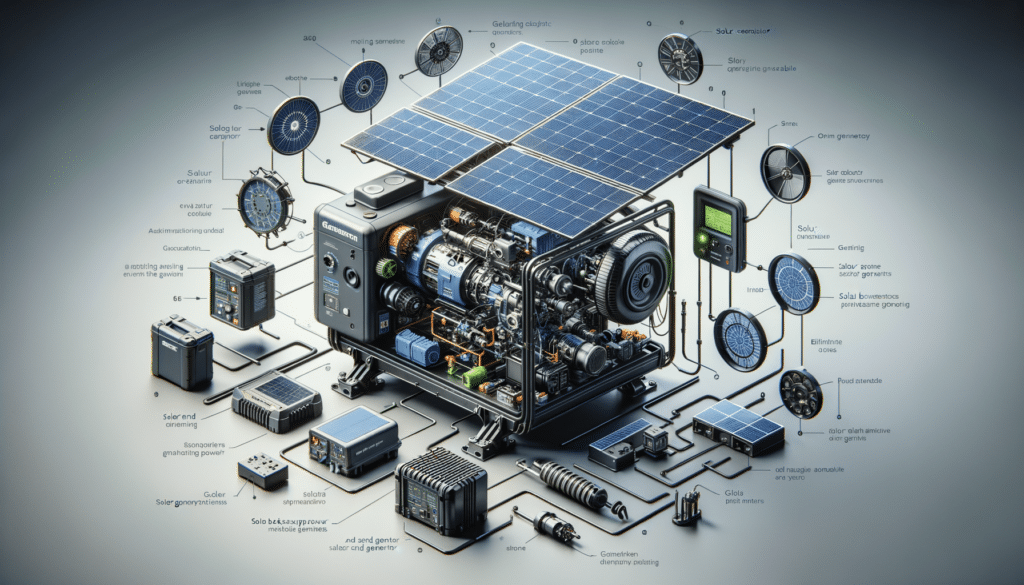Understanding Solar Generators for Home Use
Solar generators have emerged as a sustainable and efficient solution for home energy needs. Unlike traditional generators that rely on fossil fuels, solar generators harness the power of the sun, providing a clean and renewable energy source. These systems typically consist of solar panels, a battery storage system, and an inverter. The solar panels capture sunlight and convert it into electricity, which is then stored in the battery for later use. This setup makes solar generators particularly useful during power outages or in remote locations where traditional power sources are unavailable.
One of the primary advantages of solar generators is their environmental friendliness. By reducing reliance on fossil fuels, they help lower carbon emissions and contribute to a cleaner environment. Additionally, solar generators operate quietly, making them ideal for residential areas where noise pollution can be a concern. They are also relatively low maintenance, requiring only occasional cleaning of the solar panels to ensure optimal performance.
However, there are some considerations to keep in mind when opting for a solar generator. The initial cost can be higher than that of traditional generators, but the long-term savings on fuel and maintenance can offset this investment. Additionally, the efficiency of a solar generator depends on the amount of sunlight available, which can vary based on geographic location and weather conditions. Despite these factors, solar generators remain a viable and attractive option for those seeking a reliable and eco-friendly energy solution.
How Solar Electric Generators Work
Solar electric generators operate on a straightforward principle: converting sunlight into electricity. This process begins with photovoltaic (PV) cells in the solar panels, which absorb sunlight and generate direct current (DC) electricity. The electricity is then channeled into a charge controller, which regulates the voltage and current to prevent battery overcharging. From there, the electricity is stored in a battery bank, ready to be used when needed.
The stored DC electricity is converted into alternating current (AC) electricity through an inverter, making it compatible with household appliances and electronics. This conversion is crucial because most home devices operate on AC power. The efficiency of a solar generator largely depends on the quality of its components, including the solar panels, inverter, and battery storage system.
Several factors influence the performance of solar electric generators. The efficiency of the solar panels, the capacity of the battery storage, and the type of inverter all play significant roles. Additionally, the amount of sunlight available directly impacts how much energy the system can generate. For optimal performance, it is essential to position solar panels in a location that receives maximum sunlight exposure throughout the day. Regular maintenance, such as cleaning the panels and checking the battery health, can also enhance the system’s efficiency and longevity.
Benefits of Solar and Generator Systems
Integrating solar and generator systems offers numerous benefits, particularly in enhancing energy security and sustainability. One of the main advantages is the ability to provide power during outages. With a solar generator, households can maintain power for essential appliances and devices, ensuring comfort and safety even when the grid is down. This is especially valuable in regions prone to natural disasters or frequent power interruptions.
Another significant benefit is cost savings. While the initial investment in a solar generator system can be substantial, the long-term savings on electricity bills can be considerable. By generating their own power, homeowners can reduce or even eliminate their reliance on grid electricity, leading to lower utility costs. Additionally, some regions offer incentives and tax credits for renewable energy installations, further enhancing the financial appeal of solar generators.
Environmental impact is another critical consideration. Solar generators produce clean energy, reducing greenhouse gas emissions and reliance on fossil fuels. This contributes to a healthier planet and aligns with global efforts to combat climate change. Moreover, solar generators operate quietly, minimizing noise pollution and making them suitable for residential use.
Finally, solar and generator systems offer flexibility and scalability. Homeowners can start with a basic setup and expand their system as their energy needs grow. This adaptability makes solar generators an attractive option for a wide range of applications, from small homes to larger properties with significant energy demands.


